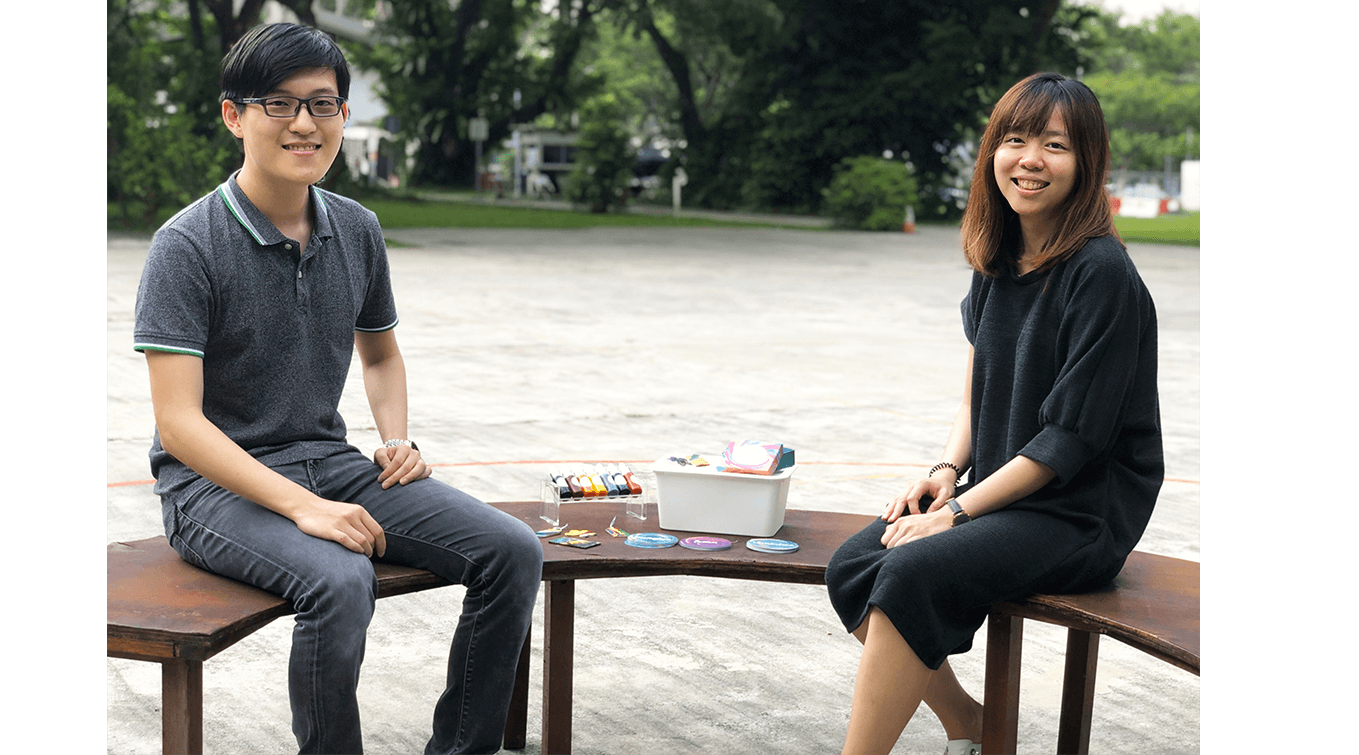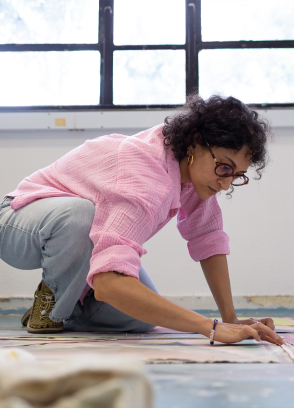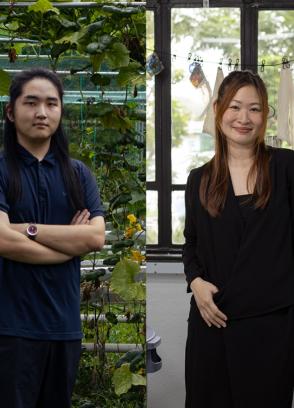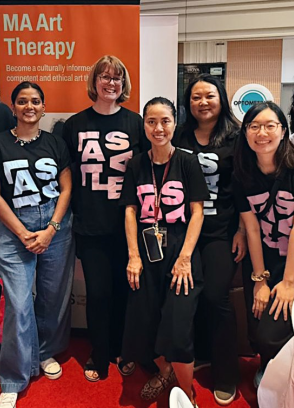Sin Shiu Heng (left), pictured with collaborator and MA Art Therapy student Bernice Lin.
Like many Singaporeans, the arts had been a huge part of Sin Shiu Heng’s life growing up, before his passion was deferred in favour of pursuing the sciences. During his undergraduate studies in Information Engineering and Media, he dipped his toes back into the arts by opting for additional design and art-based electives and undertook a five-month professional internship at Creative Technology Ltd. as an internet graphic designer. These experiences gave him the grounding he needed to work as a digital marketing designer after graduation.
Despite making the successful leap into the industry, Shiu Heng still dreamed of pursuing a formal design education, one that could provide him with the theoretical knowledge and practical skills to strengthen his credibility as a professional designer. Encouraged by his family, Shiu Heng applied to LASALLE’s MA Design programme, which turned out to be a transformative experience.
“The MA Design programme was an incredible opportunity for me to develop my own area of expertise and broaden my exposure to multiple fields, opening doors to new future possibilities,” says Shiu Heng. He was able to collaborate with a fellow master’s student from LASALLE’s MA Art Therapy programme on Rippling Conversations — a family game that promotes intergenerational bonding. The game was then adapted and used in art therapy sessions for patients with dementia, which allowed Shiu Heng to witness how his design perspective would intersect with the theory and principles of art therapy.
We speak to Shiu Heng to find out how his time on the MA Design programme has impacted his design ethos and helped him discover a newfound passion for social design.
What have been your greatest takeaways from the programme?
My MA Design journey was truly an eye-opening experience. The research-led, interdisciplinary nature of the programme has given me valuable opportunities to work with professionals from other fields of study and external organisations, allowing me to expand my knowledge and extend my network. Throughout the programme, we were constantly guided to sharpen our critical design thinking and find the intersections between design theory and practice. The programme also adopted a self-directed approach in teaching and learning, giving us the freedom to pursue our ideas from conception to execution.
LASALLE’s MA Design programme calls on students to ask critical questions about design and its role in society. What social issues did your research focus on and how did you approach it?
My research Shifting Mindsets, Bridging Generations looks at the possibilities of utilising intergenerational design to shift negative perceptions of ageing, build positive narratives of ageing and advocate for meaningful intergenerational relationships both within the kinship group and the broader community. In my thesis, I outlined the development of a generalised methodology for intergenerational practice and eventually integrated it into the creation of a series of interactive tools designed to foster intergenerational understanding through the facilitation of narrative-sharing, experiential learning and play.

Intergen Design, an educational website created by Shiu Heng to share his project and toolkits with a wider audience.
How did your collaboration with MA Art Therapy student Bernice Lin contribute to your research?
Bernice and I worked together to adapt the game Rippling Conversations, which I designed as an initial design intervention, for arts-based group therapy. This resulted in a creative tool for patients to express themselves and enhance mutual understanding of one another, and for art therapists or other professional practitioners to obtain a deeper understanding of their patients and provide therapeutic intervention where necessary. The game was brought to a residential care facility, where it was incorporated and delivered by Bernice in an ongoing closed group art therapy for patients with dementia. This provided invaluable insight into the useability and effectiveness of the game through the lens of a practising art therapist.
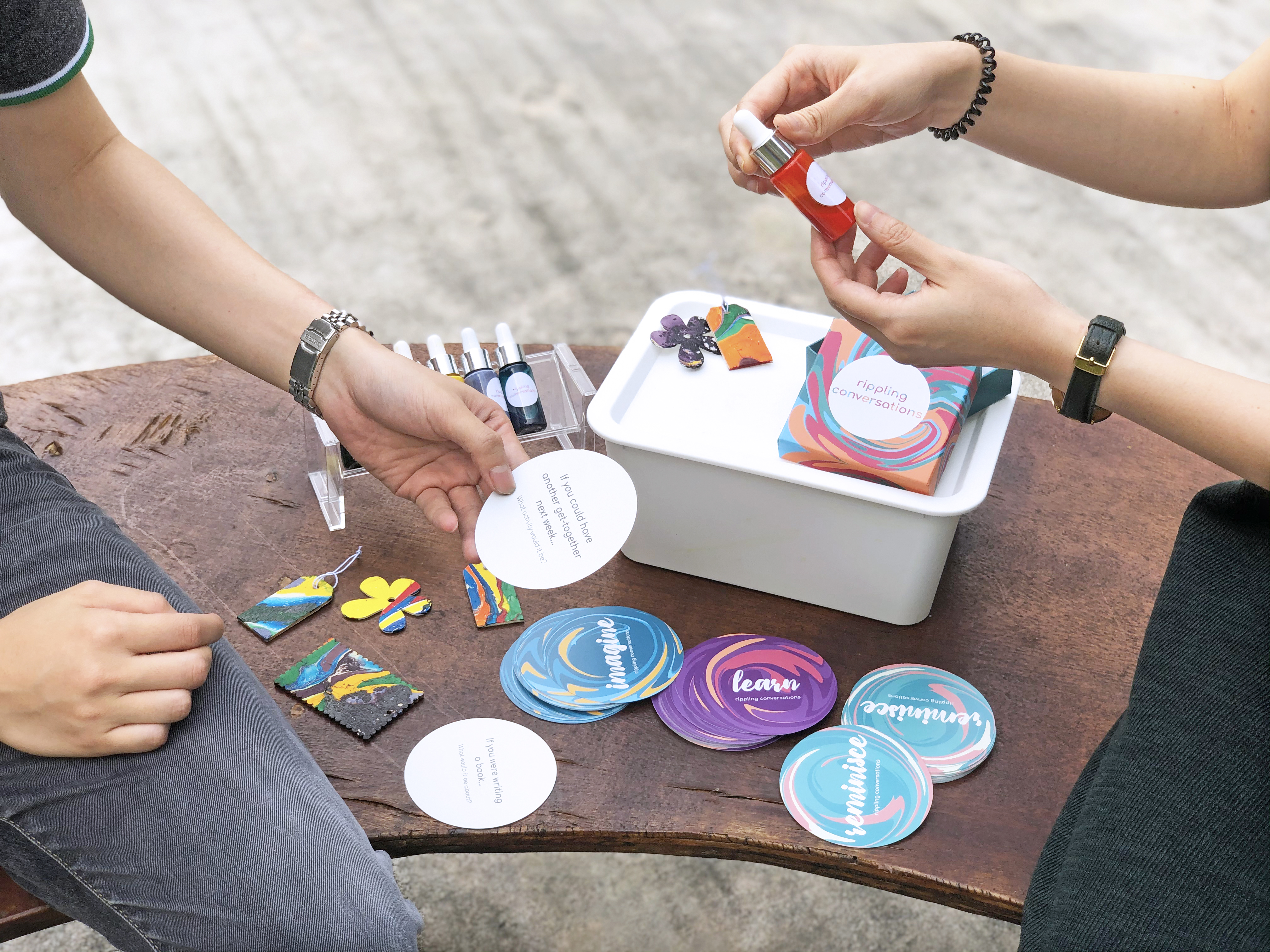
Has your experience on the programme shaped your design ethos?
My experience in the programme has undoubtedly given me new perspectives on design and refined my design practice. I believe that effective communication between designers and stakeholders is crucial in every design project. Taking on a human-centred approach, designers need to engage themselves in the cyclical process of learning and re-learning to stay informed on the ever-changing needs of people. Ultimately, design should go beyond the mere focus of functionality and aesthetics, shifting towards its ability to construct unique experiences to drive positive social change. Moving forward from my MA studies, I hope to further establish myself as a creative practitioner in the industry and continue impacting communities through my research and creative works.
What advice might you have for people considering the MA Design programme?
Regardless of whether you are a fresh graduate or an experienced professional looking to invest in personal development or improve your career prospects, continuous learning and growth are vital especially in today’s rapidly changing world. The MA Design programme at LASALLE is a transformative opportunity for those seeking to develop new ways of thinking and broaden their exposure across disciplines.
Apply now for our postgraduate programmes.

